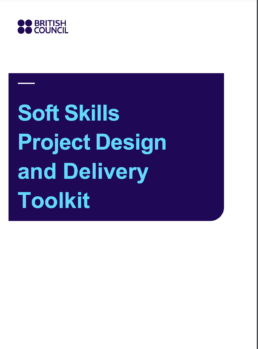Soft skills project design and delivery toolkit
Soft skills are an important factor when considering peoples’ employability and job prospects. However, numerous research has highlighted the gap in employers’ expectations and the soft skills of many job entrants. This gap has been widened by the changes connected with the globalisation, accelerated transformation and digitalisation of the market, and more recently with new demands in the post-COVID-19 era, as a result of which the importance of soft skills in education and employment has been further increased.
However, there isn’t a universally accepted definition of soft skills. They are often referred to under different titles, mean different things to different people, and are continuously evolving in responseto the changing work environment and requirements of the workforce. Neither is there a universally accepted way to deliver and assess soft skills.
The British Council believes in the central role soft skills play in improving an individual’s employability and in maximising employment opportunities and over the past years the British Council has managed a number of soft skills projects in different TVET contexts; some have had soft skills as a primary delivery objective, some have incorporated soft skills in wide TVET reform projects.
In the process of developing the toolkit an action research was conducted in to British Councilsupported soft skills development programmes. The purpose of the research was threefold:
- to help identify the main problems these different projects and initiatives were trying to solve;
- to help identify the framework components required, and;
- to review the characteristics and delivery models of the different projects British Council has been delivering across the globe in order to:
- identify success factors;
- lessons learned from the projects, and;
- inform future design and delivery.





